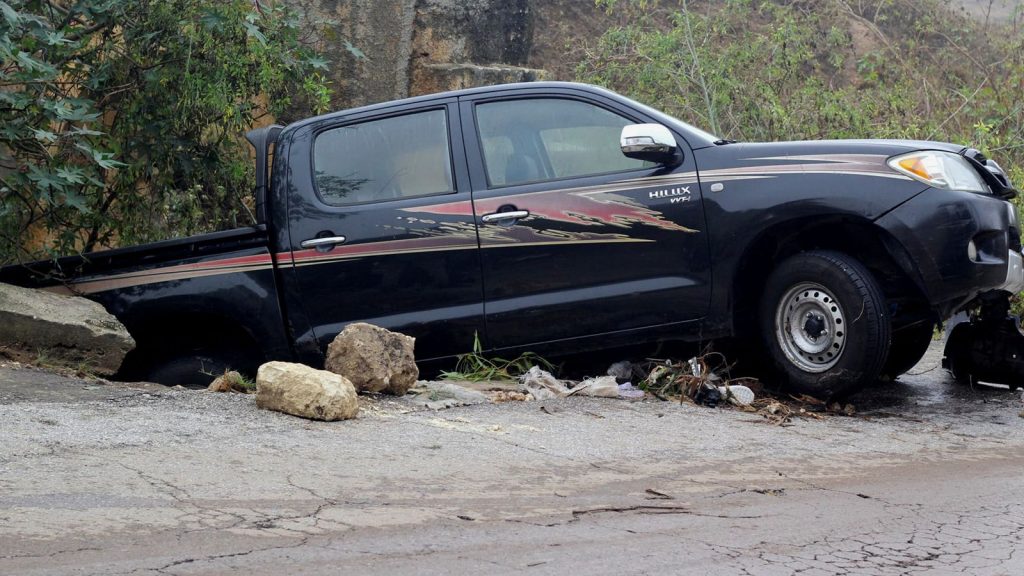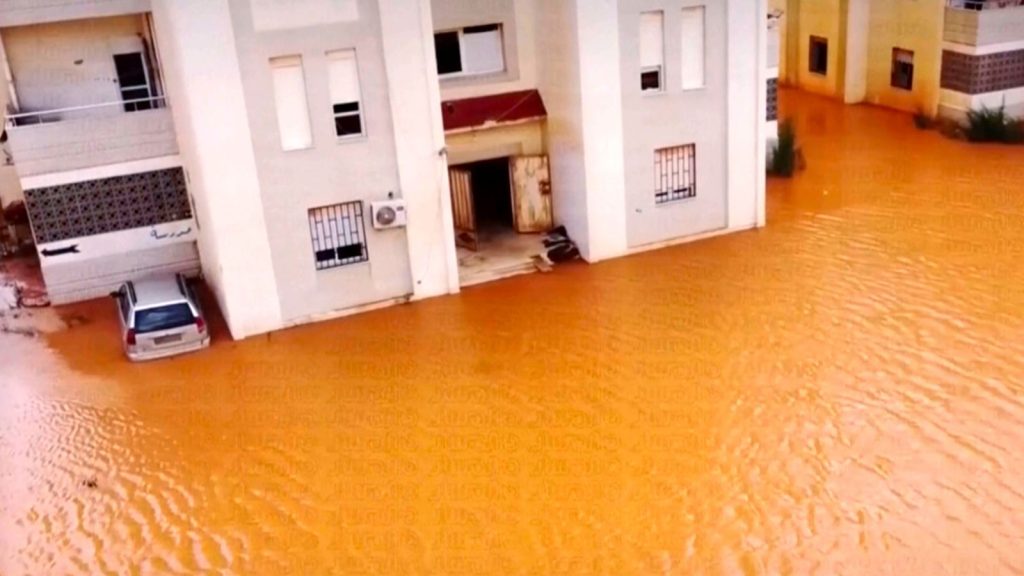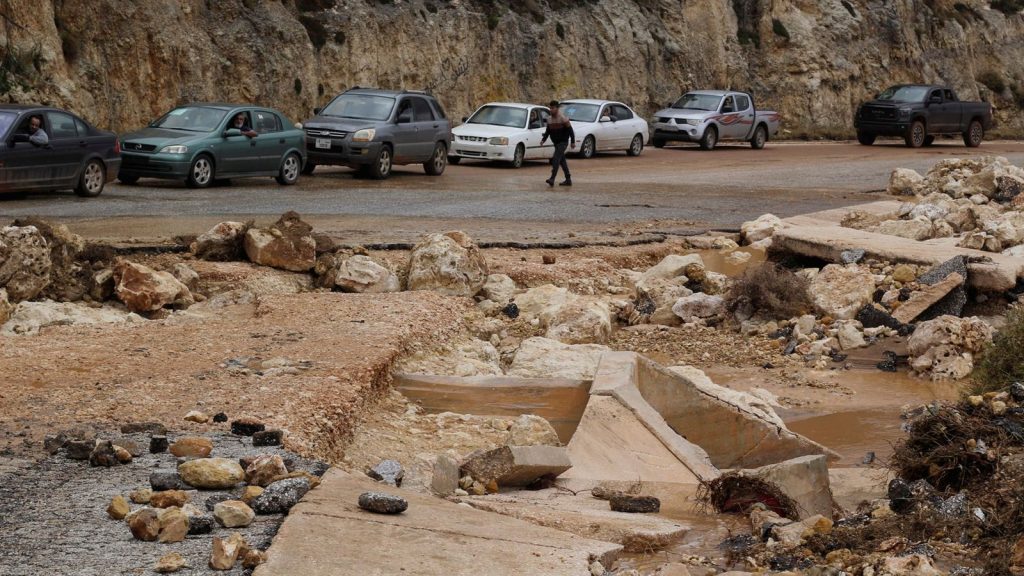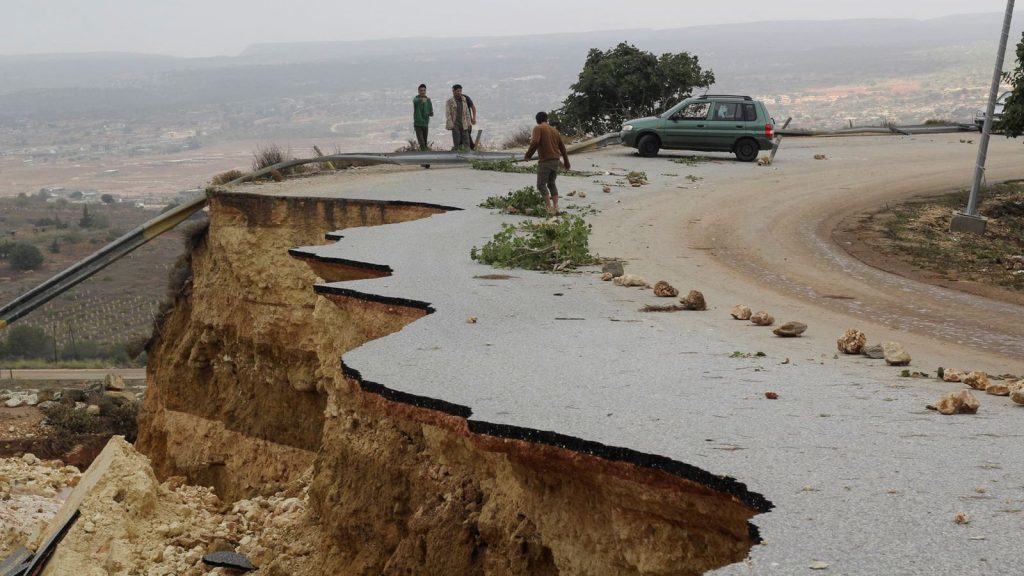In a tragic turn of events, Libya is grappling with a devastating natural disaster that has left its citizens in dire need of international assistance. The picturesque city of Derna, located in the country’s eastern region, has been ravaged by a massive flood, unleashed by the mighty Mediterranean Storm Daniel. This catastrophe has resulted in the loss of countless lives, with an estimated 2,000 people feared dead, while thousands remain missing, adding to the distress of their loved ones.
Nature’s Wrath Unleashed
Mediterranean Storm Daniel struck Libya’s eastern region with unrelenting force, causing catastrophic flooding that engulfed entire neighborhoods. The devastation was so severe that on a fateful Monday night, Libya’s government declared the eastern Cyrenaica province a disaster area.


Initially, the head of the Red Crescent aid group in the region reported 150 confirmed deaths, a number expected to tragically climb to 250. However, in a heart-wrenching phone interview with al Masar television station, Prime Minister Ossama Hamad of the east Libyan government revealed a much grimmer picture, fearing that 2,000 lives may have been lost in Derna, with thousands still unaccounted for.
A Grim Assessment
Ahmed al Mismari, the spokesperson for the Libyan National Army (LNA), which controls eastern Libya, painted a dire picture of the disaster’s origin. He attributed the catastrophe to the collapse of dams situated above Derna, a catastrophic event that he said “swept whole neighborhoods with their residents into the sea.” The toll is staggering, with over 2,000 reported deaths and an estimated 5,000 to 6,000 individuals missing.


The devastation extends beyond Derna. Abdel-Rahim Mazek, the head of the primary medical center in the eastern town of Bayda, has reported at least 46 deaths. In the northeastern coastal town of Susa, the ambulance and emergency service confirmed the loss of seven lives. Tragedy struck the towns of Shahatt and Omar al Mokhtar as well, where health minister Ossama Abduljaleel reported seven additional deaths. Even the town of Marj witnessed a tragic loss of one life on Sunday.
A Nation Divided
Libya remains a nation politically divided between its eastern and western regions. Public services have deteriorated since the 2011 NATO-backed uprising, which plunged the country into years of ongoing conflict. The internationally recognized government in Tripoli struggles to exert control over the eastern territories.


The grim reality is that many of the thousands currently unaccounted for are believed to have been swept away by the relentless floodwaters. Videos shared by residents online have laid bare the extent of the devastation, revealing entire areas obliterated along a river that traverses the city center, originating from the mountains. Multi-story apartment buildings, once a considerable distance from the river, now lie partially collapsed in the mud.
International Support and a Troubled History
In response to this dire situation, Prime Minister Hamad has declared three days of mourning and ordered flags across the country to be lowered to half-mast. Foreign governments have stepped forward to offer support. Sheikh Mohammed bin Zayed al Nahyan, the president of the United Arab Emirates, pledged humanitarian aid and search-and-rescue teams for eastern Libya through the UAE’s WAM news agency. Turkey, a supporter of the Tripoli-based government in the west, and neighboring Algeria also conveyed their condolences.


It’s crucial to understand that Libya has grappled with instability since the 2011 uprising that ousted Muammar Gaddafi. The country lacks a central government, leading to lawlessness, limited investment in infrastructure, and minimal regulation of construction. Today, Libya is divided between rival governments in the east and west, each backed by various militias. Derna and Sirte, both affected by this catastrophe, were under extremist control, including ISIS-affiliated groups, until they were liberated by forces loyal to the eastern-based government in 2018.
As Libya confronts this heart-wrenching tragedy, the world watches, and international aid becomes paramount to help the nation rebuild and heal.

